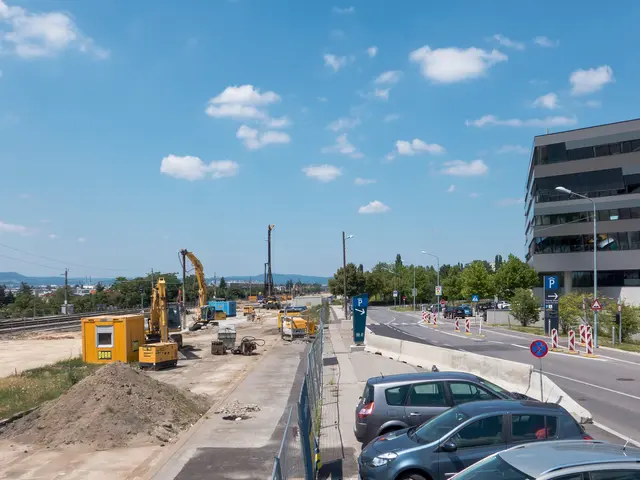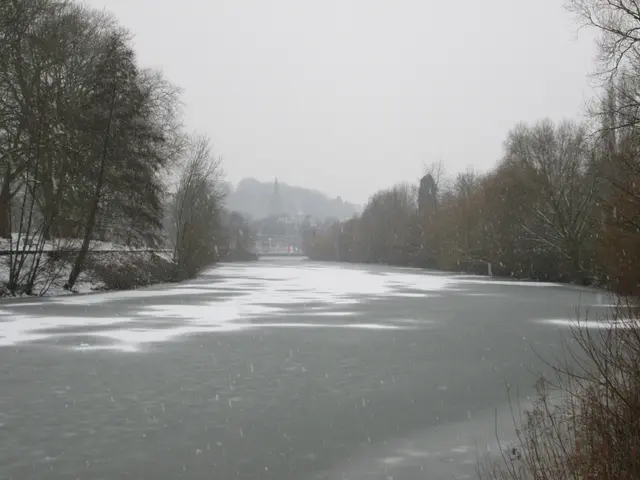European wildfires surge, fueled by intense heat and powerful winds
In recent weeks, southern Europe has been grappling with one of the most destructive wildfire seasons in decades. Spain and Portugal, in particular, have been hardest hit, with nearly 10,000 square kilometers of land burned so far this year [1].
The causes of these wildfires are multifaceted, with climate-driven heat and drought, dry vegetation, and human activities playing significant roles. Extreme heat, prolonged drought, and dry vegetation create highly flammable conditions, and climate change factors, such as rising temperatures and changing precipitation patterns, have intensified these conditions in recent years. Human activities, both accidental (e.g., careless use of fire, agricultural burns) and deliberate (e.g., arson), also contribute to wildfire ignition in these regions.
Spain and Portugal have seen large and destructive wildfires fueled by persistent heatwaves and strong winds that enable fires to spread rapidly over vast areas. The situation in Greece is also severe, with increasing wildfire occurrences linked to worsening climate patterns and rural land use practices.
The wildfires in Spain have claimed the life of six individuals this year, and the blazes have resulted in the burning of houses, farms, factories, and forced the evacuation of thousands of residents and tourists. In one incident, a cement factory was set alight by a wildfire near the Greek city of Patras.
Authorities in Spain suspect many fires across the country are intentionally caused by arsonists, with the Spanish Environment Minister, Sara Aagesen, expressing her concerns. In Portugal, a 63-year-old woman is under investigation for allegedly starting a series of fires in Galicia's Muxia area in August. In another instance, police have identified a suspect who is believed to have suffered burns to his hands after starting a small fire in a beachfront development in the southern coastal Cadiz area.
Meanwhile, in Albania, the country is struggling with a total of 24 wildfires across the country, involving 10,000 firefighters, soldiers, and police emergency units. The flames reached homes in two villages in the centre of Albania, forcing villagers to flee with their livestock.
Elsewhere in Europe, wildfires have also caused concern. In Greece, fires have spread on the Greek islands of Chios and Cephalonia, both popular with tourists. New alerts were issued for residents of two nearby villages to evacuate, and authorities ordered the evacuation of a town of about 7,700 people near Patras. Fires have also reignited an area that was thought safe in Trancoso, Portugal.
The extreme heatwave in Spain, which peaked on Tuesday with temperatures as high as 45 degrees, is expected to last until Monday. These conditions have contributed to the rapid spread of wildfires in the region.
In response to the ongoing wildfire crisis, there is an urgent need for improved fire prevention, monitoring, and emergency response strategies in southern Europe to mitigate further devastation. The intensifying wildfire trend reflects broader climate change impacts on southern Europe's ecosystems and weather patterns.
Read also:
- Germany's three-month tenure under Merz's administration feels significantly extended
- Governing body allegedly persists in enjoying vacation time amidst Spain's highest danger level due to fires, claims Feijóo
- United Nations Human Rights Evaluation, Session 45: United Kingdom's Statement Regarding Mauritius' Human Rights Record
- Hurricane-potential storm Erin forms, poised to become the first hurricane in the Atlantic Ocean this year.








